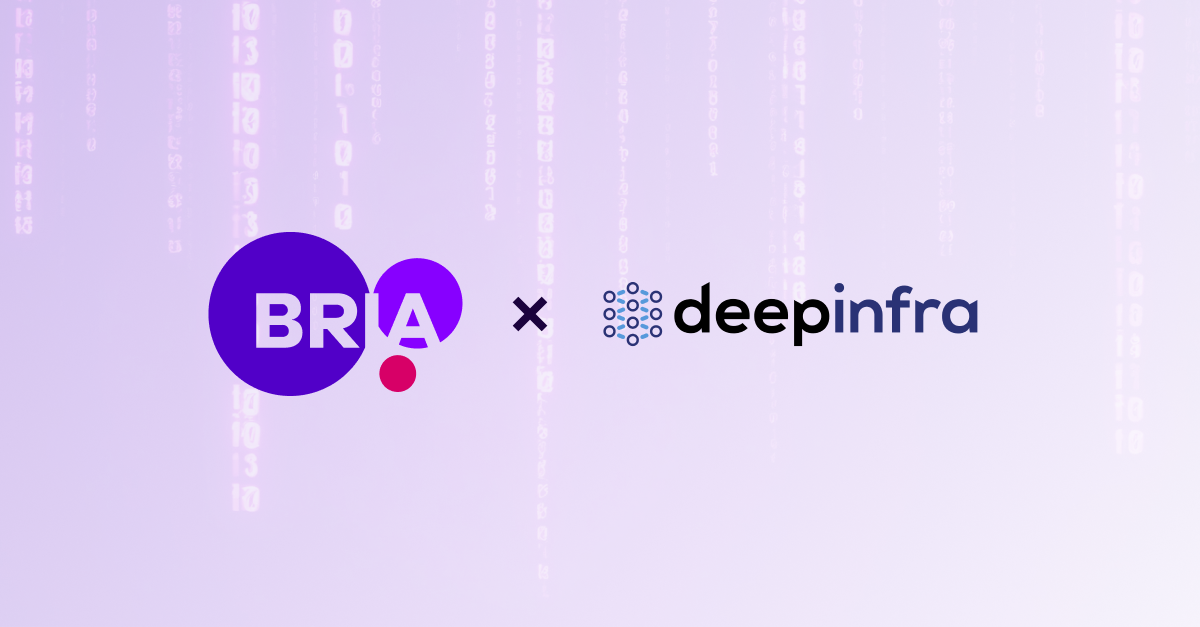3 min read
Why Bria Stands With Data Owners and Creators For Visual Generative AI
Bria.ai : Mar 18, 2025 6:21:07 PM

The recent push by OpenAI and Google to classify AI training on copyrighted works as "fair use" represents a critical inflection point for the future of AI development. As Forbes reported, these tech giants are actively lobbying the U.S. government to expand fair use protections, arguing that this is essential for American competitiveness and national security. At Bria AI, this approach fundamentally misunderstands the technical requirements for effective AI and the economic ecosystem necessary for sustainable innovation.
Beyond Extraction: Why Licensed Data Creates Superior AI
The debate over fair use in AI training often mischaracterizes the relationship between data licensing and technical performance. The argument that unfettered access to copyrighted materials is necessary for competitive AI development overlooks a crucial technical reality: models trained on properly vetted, high-quality, licensed data consistently outperform those built on indiscriminately scraped content.
This isn't merely an ethical position—it's a technical advantage. When AI systems are trained on licensed, professionally produced content:
- Misinformation propagation decreases significantly as models learn from verified sources rather than absorbing factual inaccuracies from unvetted web content.
- Privacy violations become rare since licensed data undergoes proper vetting for personal information.
- Harmful content reproduction drops measurably without exposure to toxic language and extremist viewpoints common in broadly scraped internet content.
- Hallucination problems become more manageable with training on validated information sources.
At Bria, our development approach demonstrates that properly licensed training data doesn't constrain innovation—it accelerates it by reducing the extensive post-training remediation costs that plague models built on scraped content.
The Economic Double Standard
The most glaring inconsistency in the fair use argument is its selective application. AI development requires three critical inputs: computing infrastructure, AI expertise, and high-quality training data. Yet while hardware providers and AI talent command premium compensation, content creators—whose works form the foundation of AI capabilities—are told their contributions deserve nothing.
Consider these market realities:
- Hardware companies and cloud providers receive billions for GPUs and computing infrastructure
- AI researchers and engineers command high salaries and equity stakes
- Content creators—whose lifetime works enable AI capabilities—are systematically excluded from this value chain
If AI companies truly believed all essential AI inputs should be free, they would also demand free GPUs and computing power. The selective application of "fair use" to creative content while other inputs are fully compensated reveals this position as an economic convenience rather than a principled stance.
National Security and Global Influence: The Strategic Value of Copyright
OpenAI and Google's national security argument—that copyright restrictions would cede AI leadership to China—misunderstands America's true competitive advantage. As noted in Bria's recent submission to the Office of Science and Technology Policy, America's global influence stems from technological innovation and its unmatched cultural leadership.
From Hollywood films to American music, U.S. creative industries project values and interests more effectively than any military or diplomatic effort. This cultural influence—protected by copyright—constitutes a strategic asset that:
- Contributes $2 trillion to GDP, accounting for 7.66% of the total economy
- Provides 11.6 million jobs, representing 5.43% of the U.S. workforce
- Generates trade surpluses across nearly all major global markets
If copyright protections are undermined for AI training, the U.S. risks surrendering a key pillar of its global influence. Foreign adversaries—including China—would gain unrestricted access to American creative and technological assets, allowing them to train AI on the world's most valuable content without compensation or oversight.
The Sustainable Path Forward: Licensing and Attribution
At Bria, we've built our entire visual generative AI platform based on properly licensed content. Our patented attribution engine ensures that data owners and creators receive fair compensation based on their work's impact on generated outputs. This approach doesn't just respect creator rights—it delivers technical advantages that accelerate enterprise adoption and innovation.
When enterprises know AI models are built on licensed content with clear provenance, they can:
- Deploy AI solutions with confidence, without fear of copyright infringement
- Integrate AI more deeply into content-intensive operations
- Avoid costly legal liabilities and reputational risks
- Build trusted products on compliant foundations
This creates a powerful flywheel effect where:
- Licensed AI models gain faster and broader adoption in content-intensive industries
- Widespread adoption generates diverse implementation data
- Implementation data informs better, more specialized AI development
- Innovation accelerates through real-world application
- Content producers receive fair compensation, incentivizing continued creation
A Call for Balanced AI Policy
Rather than weakening copyright protections, U.S. policymakers should:
- Recognize copyright as a strategic asset central to American cultural leadership and global influence
- Prioritize licensed data in government procurement, ensuring federal AI acquisitions favor ethically sourced models
- Establish certification programs that validate AI systems trained on properly licensed content
- Support market-driven licensing frameworks that create sustainable economic exchange between AI developers and content industries
We invite you to read Bria's full submission to the Office of Science and Technology Policy, which details our comprehensive vision for an AI ecosystem that advances both technological innovation and creator rights.
The Path Forward
The AI revolution need not come at the expense of creators. At Bria, we've proven that models trained on licensed data deliver superior performance while respecting intellectual property rights. Our approach creates a sustainable ecosystem where AI and content industries grow together, maximizing innovation and value creation across the entire economy.
The coming policy decisions will shape AI development for generations. By choosing an approach built on fair compensation rather than uncompensated extraction, we can ensure that AI advances without undermining the creative industries that give America its unique global influence.
Start with Bria today
Contact us for a deeper understanding of our Generative AI capabilities:

Case Study: Mutabor Builds Branded AI Images For Henkel with Bria For Enterprise Use

Enterprise-Grade Control Meets Creativity: New Platform Release
For enterprises, true transformation isn't about adopting a new tool; it’s about reshaping workflows in ways that deliver measurable ROI and...


